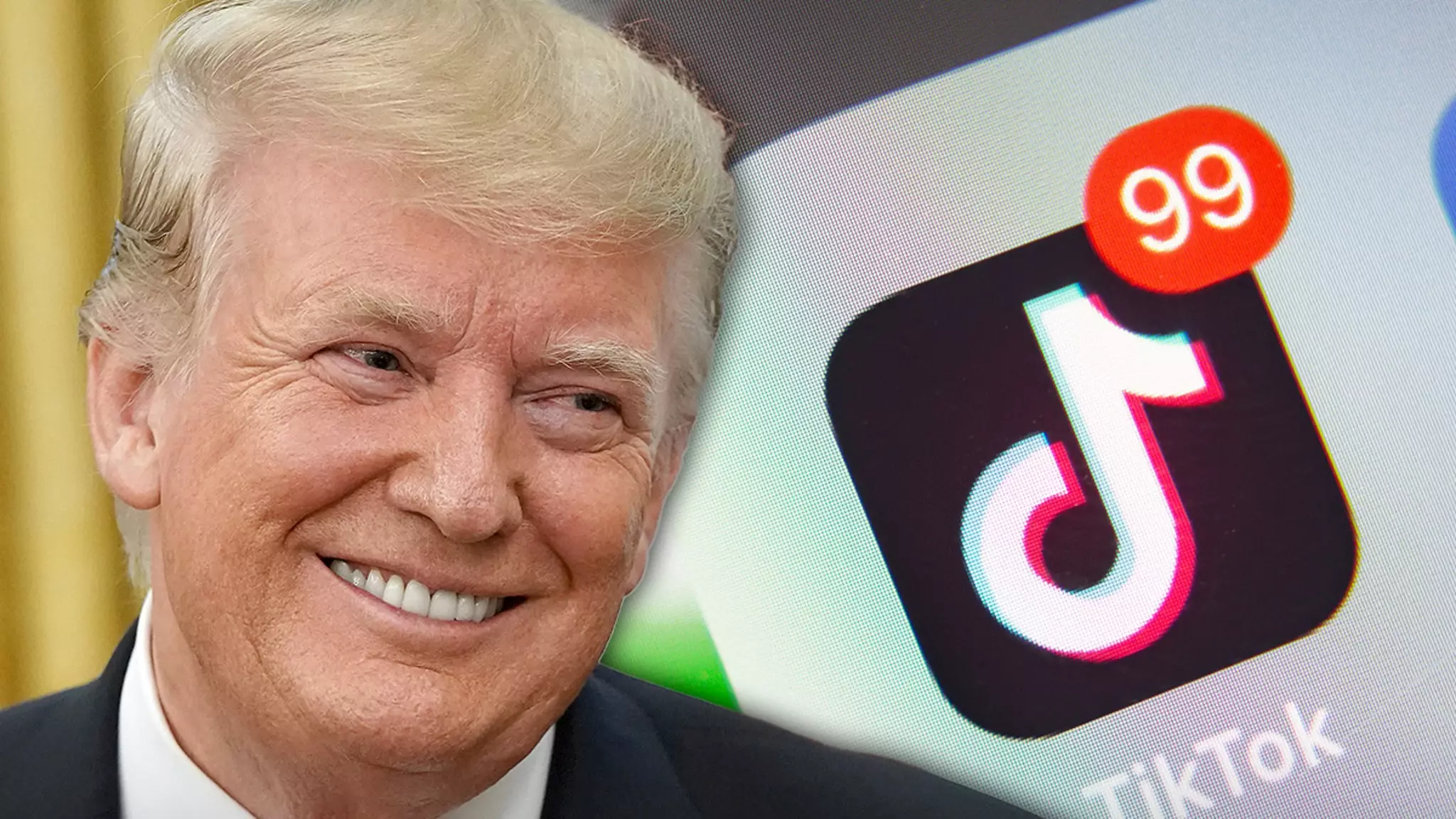In a political landscape where social media plays a crucial role, former President Donald Trump’s approach to TikTok reflects the ongoing tensions between technology, governance, and public sentiment. As he prepares to assume office, discussions have emerged surrounding the potential ban on TikTok, a platform beloved by millions of influencers and content creators worldwide. Trump has hinted at a possible 90-day extension that would allow TikTok to continue operating, a move that might provide temporary relief to its users, who depend on the app for their livelihoods.
Reporting by NBC News has indicated that Trump is considering this extension, although the final decision remains uncertain. Influencers, such as GloZell Green, have voiced their hopes that Trump will recognize the importance of supporting digital creators during this tumultuous time. The emotional connection creators have with TikTok cannot be understated; it is not merely a platform but an essential space for self-expression and income generation.
While the possibility of extending TikTok’s operational status may seem straightforward, it is entangled in a web of legal and procedural requirements. The president’s capacity to delay the ban relies on several key conditions being met. Primarily, there must be a viable pathway for ByteDance, the Chinese company that owns TikTok, to divest its stake in the platform, ultimately resulting in an American company assuming control. This divestiture process hinges on “significant progress” toward actualizing the change, alongside the establishment of binding legal agreements to facilitate this transition.
This legal complexity highlights a broader narrative about technological sovereignty and national security. The concerns regarding foreign ownership of popular social media platforms stem from fears about data privacy and potential espionage. Thus, any extension granted by President Trump must align with these national security considerations, further complicating the decision-making process.
The reaction from the influencer community regarding the potential ban has been one of skepticism and resistance. High-profile figures like Jason Derulo have expressed doubts about the feasibility of a complete shutdown of TikTok, emphasizing the platform’s inherent value. With millions of creators and users relying on TikTok as a staple for entertainment and income, the potential loss would echo across the digital landscape, curtailing creative expressions and damaging economic prospects for content creators.
In light of these discussions, the atmosphere is tense as stakeholders await clarity on the future of TikTok. The precarious balance between protective measures and the promotion of free enterprise encapsulates a pivotal moment—not just for the app but for the broader implications of social media governance in a rapidly changing digital environment.
As the clock ticks down towards the potential ban, the question remains whether Trump will indeed take the necessary steps to ensure TikTok’s continued existence or whether the complexities of legal requirements will render his intentions moot. For the vast community of influencers and users, the uncertain fate of TikTok encapsulates a greater sentiment about digital ownership and the rights of creators in an interconnected world. As discussions evolve, one thing is clear: the battle for TikTok is emblematic of a larger struggle involving technology, politics, and the very livelihood of those who thrive within the digital economy.


Leave a Reply